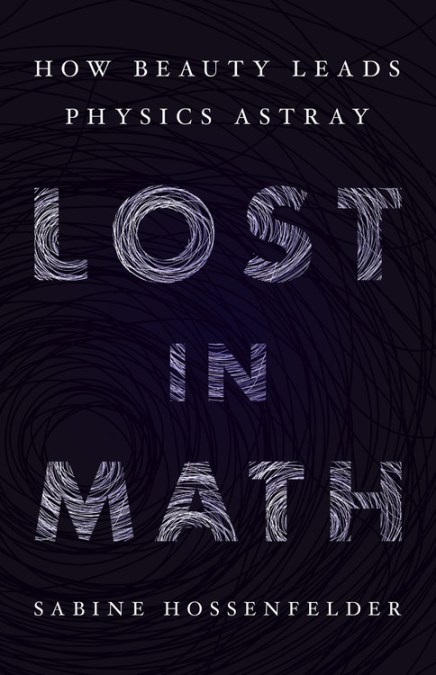
Theoretical physicist Hossenfelder, author of Lost in Math: How Beauty Leads Physics Astray, thinks that the fact that the Large Hadron Collider found only the Higgs, and not where it was expected, offers an insight:
Before the LHC turned on, particle physicists had high hopes it would find something new besides the Higgs boson, something that would go beyond the standard model of particle physics. There was a lot of talk about the particles that supposedly make up dark matter, which the collider might produce. Many physicists also expected it to find the first of a class of entirely new particles that were predicted based on a hypothesis known as supersymmetry. Others talked about dark energy, additional dimensions of space, string balls, black holes, time travel, making contact to parallel universes or “unparticles”. That’s particles which aren’t particles. So, clearly, some wild ideas were in the air.
Sabine Hossenfelder, “What does the future hold for particle physics?” at BackRe(Action)
Yeh. Thems was wild times.
The reason that many particle physicists believed in these speculations is that they mistakenly thought the standard model has another problem which the existence of the Higgs would not fix. I am afraid that many of them still believe this. This supposed problem is that the standard model is not “technically natural”. This means the standard model contains one number that is small, but there is no explanation for why it is small. This number is the mass of the Higgs-boson divided by the Planck mass, which happens to be about 10-15. The standard model works just fine with that number and it fits the data. But a small number like this, without explanation, is ugly and particle physicists didn’t want to believe nature could be that ugly.
Sabine Hossenfelder, “What does the future hold for particle physics?” at BackRe(Action)
Is “ugliness” really the issue here? Or is it something else?
What happens to particle physics now probably predicts the future of other sciences. Will particle physicists go on to do more precise measurements at lower energies and the study of particles, accepting the reality, as Hossenfelder goes on to suggest they do? Or will theory increasingly untether itself from reality?
We may be living in the decline of science. After all, the Millennials are into astrology.
See also: Has the Large Hadron Collider broken physics? Sabine Hossenfelder, author of Lost in Math: How Beauty Leads Physics Astray, responds to philosopher David Wallace’s claim to the effect “ any such naturalness failure threatens to undermine the entire structure.” At bottom, the Collider produced useful data but did not, it seems, support the cosmologies that various theoretical physicists’ careers depend on.
and
Incidentally, how come millennials, educated in Darwin-only science classes, are big on astrology? We’re not claiming it’s a cause. Just noticing that aggressive defense of Darwinism and other kinds of naturalism proves no deterrent to nonsense
Follow UD News at Twitter!